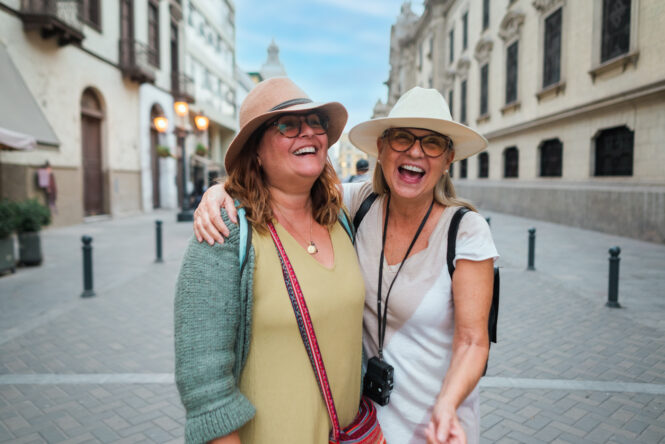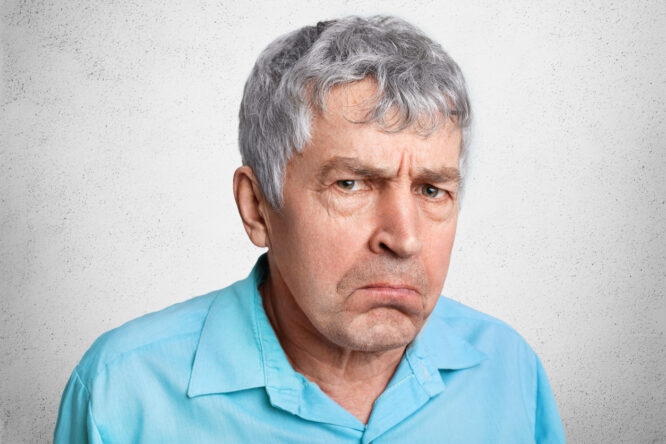When the world feels like it’s spinning too fast, it can be hard to find your footing.

There’s no shortage of things to worry about — from the news cycle and politics to climate change, the cost of living, and personal stress — and it all adds up fast. You might feel like you can’t focus, can’t fix anything, or can’t even rest properly. That’s when you need reminders that help you breathe, change perspective, and remember that your mental and emotional health still matters, even when everything else feels like too much.
1. You’re allowed to turn off the news without feeling guilty.

In today’s world, it’s easy to feel like you have to stay constantly informed or risk falling behind. But endless news consumption doesn’t make you more prepared. It often just makes you more anxious. You don’t need a live stream of every crisis in order to be aware or empathetic. Stepping away from it doesn’t mean you’ve stopped caring.
Giving yourself breaks from the news is a healthy boundary, not a betrayal of your values. You’re still a compassionate and thoughtful person, even if you protect your mind from constant updates. The world keeps moving, but you don’t need to exhaust yourself trying to match its pace every second.
2. You can care deeply and still protect your peace.

It’s possible to be a kind, engaged person without personally absorbing every problem in the world. Emotional burnout often comes not from apathy, but from feeling too much all at once and not knowing where to put it. You don’t have to carry every crisis in your chest to prove you’re paying attention. Caring doesn’t mean you have to bleed for everything.
There’s strength in knowing when to step back and refocus your energy. Setting emotional limits doesn’t mean you’ve stopped engaging; it means you’re learning how to stay present without burning out. Choosing peace isn’t the same thing as giving up.
3. Resting doesn’t mean you’re ignoring what matters.

There’s a quiet kind of guilt that creeps in when you try to rest while the world is falling apart. You wonder if you’re being selfish for logging off, or lazy for not doing more. But real rest is what gives you the ability to return stronger, clearer, and more capable. Burned-out people can’t help the world; they just collapse trying.
You’re not choosing between caring and resting — you’re doing both. When you let yourself recharge, you come back with a better sense of what’s truly worth your time and energy. And the people who really make a difference are often the ones who know when to pause and refuel before giving again.
4. The small things you do every day still matter.

In the face of global issues, your everyday actions can feel pointless or laughably small. But connection, kindness, and integrity don’t stop being powerful just because they’re not trending. Every time you check in on someone, give your energy to something good, or even choose compassion over judgement — it counts. These aren’t distractions from what matters; they’re part of it.
Trying to change the world overnight is overwhelming, but showing up with decency in your daily life is a form of quiet resistance. The way you treat other people (and yourself!) becomes part of the atmosphere around you. And if enough people do that, it starts to change things in ways that last.
5. Feeling overwhelmed doesn’t mean you’re weak.

It’s easy to believe you’re not handling things well when it all starts to feel too heavy. But overwhelm is a human response to a world that’s often too much. It doesn’t mean you’re fragile or failing. It means your nervous system is responding honestly to everything coming at it. You weren’t meant to absorb this much information, emotion, and pressure nonstop.
The fact that you feel overwhelmed shows that you care, that you’re paying attention, and that you’re not numb. That’s not weakness; that’s emotional awareness trying to keep up with a very fast, very loud world. There’s no shame in needing a break when your heart is full.
6. Your best doesn’t need to look like anyone else’s.

On social media or in everyday life, it’s easy to compare how you’re coping to how other people seem to be. Someone else might be out organising marches or posting daily updates, while you’re just trying to stay calm and get through the day. But effort isn’t a contest, and caring doesn’t have one specific shape. There’s no universal standard for doing “enough.”
Your best might look like showing up for your family, keeping your routines steady, or limiting your exposure to things that harm your mental health. That counts. You don’t need to prove your value by being visibly busy or emotionally wrecked — doing what helps you stay grounded is more than enough.
7. You’re allowed to not have answers right now.

One of the hardest things about modern life is the constant pressure to have an opinion, a plan, or a perfectly informed perspective on everything. But it’s okay to say, “I don’t know.” It’s okay to admit you’re still learning or still trying to understand. Nobody has it all figured out, even if it looks that way online.
Letting go of the need to be certain gives you space to breathe. It also helps you stay open-minded, rather than rushing to fix something you don’t fully understand. Curiosity, not certainty, is what keeps us moving forward with compassion and clarity.
8. You can hold both heaviness and hope at the same time.

It’s not all or nothing — you can feel heartbroken about the world and still laugh with a friend. You can cry one moment and feel inspired the next. These conflicting emotions aren’t a sign of confusion; they’re a sign you’re emotionally alive. Hope and despair often live side by side, and both deserve space.
Allowing yourself to feel both makes you more resilient, not less. It keeps you rooted in reality, but also connected to what’s still possible. Being overwhelmed doesn’t cancel out hope. It just means you care enough to be moved.
9. You don’t have to be ‘on’ all the time.

When you feel pressure to be constantly engaged, productive, or emotionally available, it’s exhausting. The thing is, you’re not a machine. You’re allowed to step back, say no, or shut the world out for a while. You don’t have to keep performing strength to be seen as strong. Real strength includes knowing when to rest and when to disconnect.
You’re not a bad person for needing stillness. In fact, the people who take breaks often return more present, more thoughtful, and more genuinely helpful than those who try to power through everything without pause. Switching off sometimes is how you keep your humanity intact.
10. Your immediate world is still important.

In a time when global issues feel massive, focusing on your own life can feel selfish. But caring for your relationships, your mental health, and your daily peace doesn’t make you ignorant. It makes you human. And creating something kind or stable in your own space can ripple out further than you think.
Your impact doesn’t need to be flashy or far-reaching to be real. Often, the most meaningful shifts happen in kitchens, living rooms, and quiet moments. Don’t underestimate how much power there is in looking after what’s close to you.
11. You don’t have to respond to everything right away.
 Source: Unsplash
Source: Unsplash The speed of modern life creates a false urgency that demands instant reactions. Whether it’s a news story, a message, or a heated comment thread, it can feel like you need to have an immediate response. Of course, urgency doesn’t always equal importance, and not everything requires your input.
Taking time to process before reacting gives you space to be thoughtful instead of reactive. It helps you respond in a way that aligns with your values rather than your stress. Slowing down is a powerful way to reclaim control over how you show up in the world.
12. You’re still allowed to feel joy, even now.

It can feel strange or even wrong to enjoy life when so much around you is in pain, but joy isn’t disrespectful. It’s a sign that you’re still connected to something bigger than fear. Letting yourself feel happiness doesn’t mean you’ve stopped caring. It means you haven’t been broken by everything yet.
Joy is one of the most radical forms of resilience. It keeps you human, connected, and open, even when the world tries to harden you. You don’t need to justify your laughter, your rest, or your hope. You just need to let them in when they show up.




